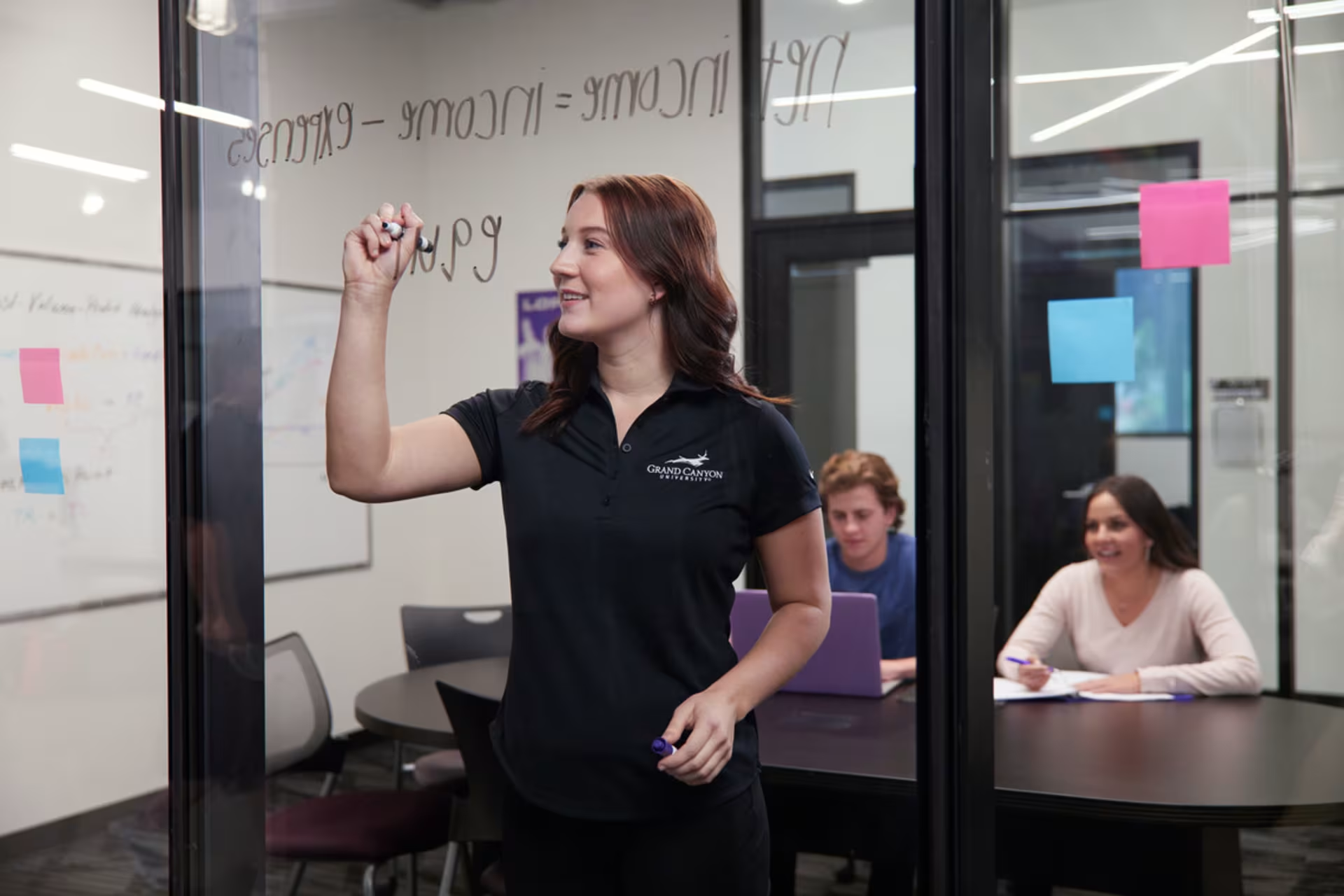


This Bachelor of Science in Accounting with an Emphasis in Public Accounting is designed to teach you how to interpret and communicate financial information, assist organizations in complying with government and industry financial regulations, serve as an ethical leader within organizations and collaborate in business decision-making processes within organizations.
Upon graduating, you may decide to gain hands-on work experience and/or apply to a master’s degree in accounting for the purpose of meeting state licensure requirements to become a certified public accountant (CPA).(See disclaimer 1) This bachelor’s degree is intended to provide a firm foundation for students seeking a graduate degree in accounting.

Accounting is about more than calculating numbers and preparing financial reports. Through quality accounting practices, you have the potential to generate key insights that will enable people and companies to make data-driven decisions. In short, accounting is a way to help clients meet their financial goals while monitoring their progress.
Our accounting students are immersed in a supportive learning environment. You will work through the curriculum under the guidance of dedicated faculty members, taking a close look at a breadth of topics, including organizational behavior, managerial best practices and professional ethics.
This bachelor’s degree in accounting teaches all five of GCU’s critical competencies:
Effective communication
Critical thinking
Christian worldview
Leadership and global awareness
Perspectives and ethics
As an on-campus student at GCU, you can benefit from face-to-face interactions with your peers and hearing from a diverse range of perspectives in classroom discussions. Get to know your instructors and ask for additional help during office hours as you take in all that our campus life has to offer. Located in the heart of Phoenix, our campus is home to a thriving community of Christian students, offering plenty of opportunities to get involved in clubs, sports and other activities.
As you work toward your degree, you will be taught by dedicated faculty members. As you approach completion of this degree, you will have the opportunity to apply the concepts and skills you’ve been taught during a writing-intensive capstone course. You will be expected to demonstrate proficiency with a variety of business competencies.
In your courses, you will explore necessary accounting subject matter, including:
The accounting cycle
Individual and entity taxation
Financial, managerial and cost accounting
Auditing
Macro and microeconomics
Business finance fundamentals
Accounting ethics
Intermediate accounting
Statistics for business

This BS in Accounting with an Emphasis in Public Accounting degree program teaches a strong foundation of skills intended to prepare graduates to tackle a range of challenges in the workplace.
These skills include:
GCU’s public accounting program is ideal for students who plan to pursue CPA licensure. It is expected that most students will go on to earn their master's degree in order to complete the academic eligibility requirement for CPA licensure that is mandated in most states and territories.(See disclaimer 1)
With a solid framework of competencies in financial reporting, auditing and taxation, you may be prepared to pursue work as an accountant within the fields of public accounting, corporate accounting, financial analysis, tax preparation, auditing and consulting.
Median annual wage for accountants and auditors as of May 2023(See disclaimer 2)
GCU is proud to carry on our longstanding tradition of thoroughly preparing our graduates to elevate their communities, make positive contributions to their respective fields and tackle modern challenges with innovation and integrity.
As an institutionally accredited university, we prioritize the quality of our academics. The Higher Learning Commission has continually accredited GCU since 1968. The Colangelo College of Business shares the university’s commitment to upholding the principles and standards established by our accrediting bodies.
If you’re interested in accounting and aspire to become a CPA, read through our frequently asked questions to learn more about this career path and what you can expect from a certified public accounting program.
Is a BS in Accounting: Public Accounting emphasis program hard to get into?
Does a public accounting emphasis prepare me for CPA licensure?
What’s the difference between private and public accounting?
What software will I learn to use in a BS degree for public accounting?

Prepare to empower individuals and companies with financial insights.
Campus: $8,250 per semester [More Info]
Up to 90 credits, only 84 can be lower division
Credits: Fill out the Lopes Eval to find out what will transfer
Admission Requirements (Bachelor's)
OR 2.5+ Unweighted GPA and
Admission requirements may differ based on degree level, program and modality, or transfer status. Some programs of study may require a higher GPA and/or other qualifying criteria for admission. Please review full admission and program requirements in the University Policy Handbook.
*Math and reading only on a 1600 point scale (test date after 3/1/2016). SAT score of 1380 required for 2400 point scale (test date before 3/1/2016).